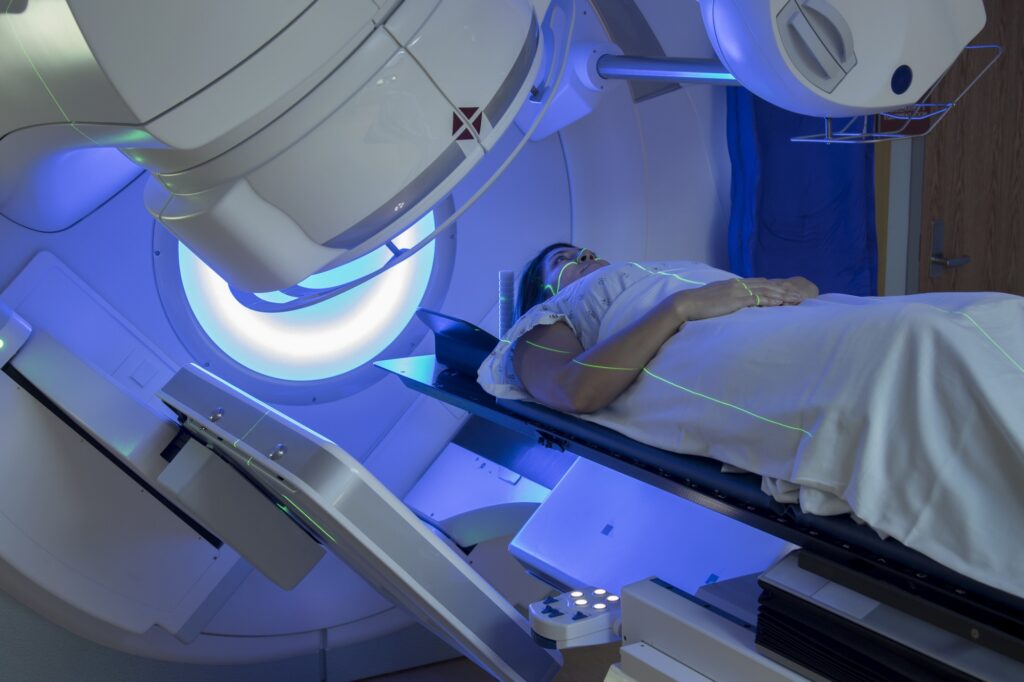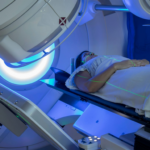
Radiation therapy is a widely used treatment modality for prostate cancer, offering effective options to control and eradicate the disease. In this article, we delve into the role of radiation therapy in prostate cancer treatment, highlighting its efficacy in targeting cancer cells while considering the potential side effects. Understanding the balance between efficacy and side effects is crucial in optimizing treatment outcomes and improving the quality of life for prostate cancer patients.
External Beam Radiation Therapy for Prostate Cancer:
External beam radiation therapy (EBRT) is a commonly employed treatment approach for prostate cancer. It involves delivering targeted radiation to the prostate gland from an external machine. EBRT effectively kills cancer cells and helps shrink tumors, reducing the risk of cancer recurrence. The treatment is typically administered over several weeks, with each session lasting only a few minutes.
Brachytherapy for Prostate Cancer:
Brachytherapy, a form of internal radiation therapy, is another option for treating prostate cancer. It involves implanting tiny radioactive seeds directly into the prostate gland. These seeds release radiation over time, effectively targeting and eradicating cancer cells. Brachytherapy can be performed as a permanent or temporary implant, depending on the patient’s condition and treatment plan.
Efficacy of Radiation Therapy in Prostate Cancer Treatment:
Radiation therapy, whether through EBRT or brachytherapy, has shown significant efficacy in treating prostate cancer. It can be used as a primary treatment option, especially for localized cancer, or as an adjuvant therapy following surgery. Radiation therapy targets and destroys cancer cells, leading to tumor regression and reducing the risk of disease progression.
Side Effects of Radiation Therapy:
While radiation therapy is effective in treating prostate cancer, it can also result in certain side effects. Common side effects include fatigue, urinary changes (such as increased frequency or urgency), bowel changes (such as diarrhea), and erectile dysfunction. However, it is important to note that not all patients experience these side effects, and their severity can vary from person to person.
Managing Side Effects:
Advancements in radiation therapy techniques and supportive care have significantly improved the management of side effects associated with prostate cancer treatment. Healthcare professionals work closely with patients to mitigate and alleviate these effects through medications, lifestyle modifications, and supportive therapies. Open communication with the healthcare team is essential to address any concerns and ensure comprehensive care.
Individualized Treatment Planning:
When considering radiation therapy for prostate cancer, treatment planning is personalized to each patient’s specific needs. Factors such as cancer stage, overall health, age, and individual preferences are taken into account to determine the most appropriate radiation therapy approach. This individualized approach helps to optimize treatment outcomes and minimize side effects.
Multimodal Approaches:
In some cases, radiation therapy may be combined with other treatment modalities, such as surgery, hormone therapy, or chemotherapy. This multimodal approach aims to enhance treatment efficacy and improve overall survival rates. The decision to combine therapies is based on the characteristics of the cancer, the stage of the disease, and individual patient factors.
Cancer Care Pune: Specialized Prostate Cancer Treatment:
For patients seeking specialized prostate cancer treatment, Cancer Care Pune offers comprehensive and advanced care options. With a team of experienced oncologists, state-of-the-art technology, and a patient-centered approach, Cancer Care Pune provides individualized radiation therapy plans tailored to the specific needs of prostate cancer patients. The clinic’s focus on optimal treatment outcomes, side effect management, and supportive care ensures that patients receive the highest standard of care throughout their treatment journey.
Importance of Regular Follow-up:
After radiation therapy, regular follow-up appointments are essential to monitor treatment response and address any potential side effects or complications. These appointments provide an opportunity to assess the effectiveness of the treatment, make adjustments if necessary, and offer ongoing support for the patient’s well-being.
Summary:
Radiation therapy, whether delivered through EBRT or brachytherapy, plays a significant role in the treatment of prostate cancer. It offers effective tumor control and the potential for long-term cancer eradication. While side effects are possible, advancements in treatment techniques and supportive care have improved their management. By partnering with experienced oncologists and reputable clinics such as Cancer Care Pune, prostate cancer patients can receive personalized radiation therapy plans and comprehensive care to achieve the best possible treatment outcomes and maintain their quality of life.




